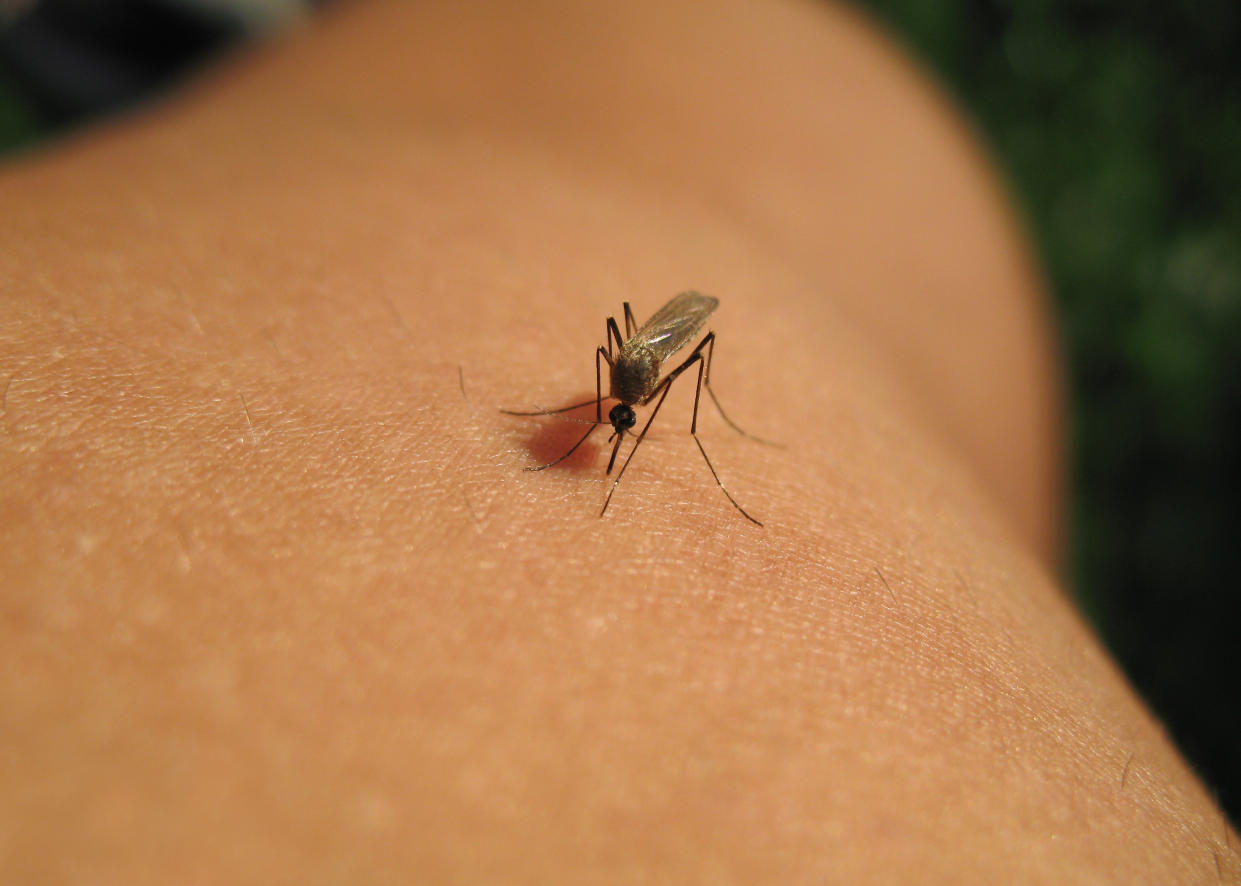CDC says at least 17 people have West Nile virus — here’s how to distinguish symptoms from COVID-19

West Nile virus is on the rise, with the first human cases of the season being reported in several counties throughout the U.S. The virus is typically spread when a person is bitten by an infected mosquito, according to the CDC. In some cases, infected people can exhibit symptoms that are similar to COVID-19’s flu-like symptoms, making it harder to tell the two diseases apart.
According to the Centers for Disease Control and Prevention (CDC), 17 human cases of West Nile virus have been reported to the agency so far, including Los Angeles County’s first two confirmed cases of the season, along with other cases reported in Texas (including Tarrant County, as well as a “probable human case” in Travis County) and Florida (including Palm Beach and Miami-Dade Counties). Last year, an estimated 958 people were infected with West Nile virus in the U.S. and 54 people died, according to the CDC.
“Most people who are infected with the virus — about 80 percent — develop no symptoms whatsoever,” Dr. Paul Auwaerter the clinical director of the division of infectious diseases at the Johns Hopkins Hospital and professor of medicine at Johns Hopkins University School of Medicine, tells Yahoo Life. “About 20 percent might develop a flu-like illness [also known as West Nile fever] that is probably indistinguishable from COVID-19. They can have headache, fever, muscle aches, gastrointestinal symptoms [vomiting and diarrhea], and swollen lymph glands.”
West Nile virus can also cause a skin rash on the chest, stomach and back, according to the CDC. While some coronavirus patients also report rashes — in particular, on their toes — it’s not considered a common symptom of COVID-19, according to the Cleveland Clinic.
With the diseases sharing several similar symptoms, Auwaerter says, “People are just assuming they have COVID-19,” rather than West Nile virus. That’s understandable given that there are more than 4.6 million cases of the coronavirus in the U.S., compared to only a handful of West Nile virus cases so far this season. “Statistically, it’s probably true that it’s COVID in these cases,” he says. “But it’s not always the case.”
Both diseases can cause serious health problems. About 1 in every 150 people develop a severe West Nile virus infection that affects the central nervous system, causing inflammation of the brain (encephalitis) or inflammation of the membranes surrounding the brain and spinal cord (meningitis), according to the Mayo Clinic. Those symptoms — which require immediate medical attention — include high fever, severe headache, stiff neck, disorientation or confusion, tremors, and muscle weakness, according to the Mayo Clinic. “They might even have a seizure,” says Auwaerter.
Although more research is needed, COVID-19 also appears to affect the nervous system, causing neurological symptoms such as “headache, dizziness, decreased alertness, difficulty concentrating, disorders of smell and taste, seizures, strokes, weakness and muscle pain,” according to a June 2020 study published in the Annals of Neurology.
But, as Auwaerter points out, “COVID-19 is a [contagious] respiratory illness — West Nile is not.” So unlike coronavirus, West Nile virus is not spread through coughing, sneezing, or touching, according to the CDC. A blood test can confirm a West Nile virus infection, while a nasal swab test can confirm whether a patient is infected with the coronavirus.
As with COVID-19, age and having other health issues play a role: People 50 and older, as well as those with certain health conditions (such as cancer, diabetes, hypertension, and kidney disease), are more likely to develop the severe form of West Nile virus, notes Auwaerter. According to the CDC, about one in 10 people with this severe neurological form of the disease die.
There are currently no vaccines for West Nile virus or the coronavirus, though multiple potential vaccines for the latter are in the works.
In the meantime, there are steps you can take to reduce your risk of contracting either virus. The CDC emphasizes wearing masks in public settings, social distancing, and washing hands regularly with soap and water for 20 seconds (or using a hand sanitizer with at least 60 percent alcohol) to help prevent the spread of coronavirus.
For West Nile virus, experts recommend keeping mosquitos at bay by using a bug repellent registered with the Environmental Protection Agency, such as DEET or picaridin, while outside, along with wearing long pants and long-sleeved shirts. Since most mosquitos lay eggs in water, it’s also important to drain any standing water found in “tires, buckets, planters, toys, pools, birdbaths, flower pot saucers, or trash containers” outside your home, according to the CDC.
For the latest coronavirus news and updates, follow along at https://news.yahoo.com/coronavirus. According to experts, people over 60 and those who are immunocompromised continue to be the most at risk. If you have questions, please reference the CDC’s and WHO’s resource guides.
How to maintain your physical and mental health during the pandemic
Taking care of a loved one with COVID-19? Here’s how to stay healthy
Q&A with Dr. Kavita Patel: How to keep your family safe and maintain your mental health
Read more from Yahoo Life:
New study identifies 6 'clusters' of COVID-19 symptoms, could help 'predict' severe cases
Lyme disease or coronavirus? Here’s how to tell the two apart
Want daily lifestyle and wellness news delivered to your inbox? Sign up here for Yahoo Life’s newsletter.


